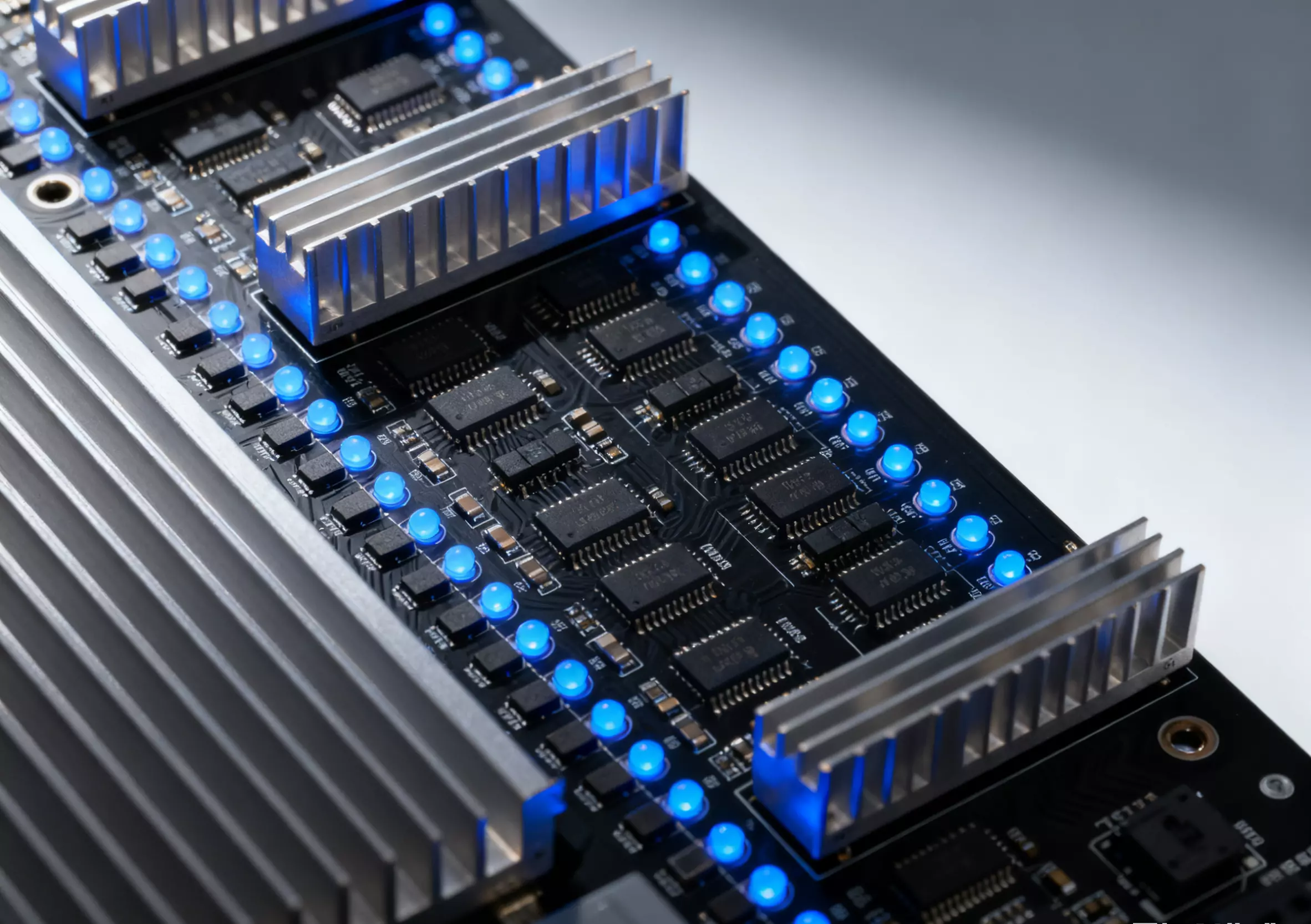Residential Energy Storage BMS Analysis: The Core Technology Determining System Lifespan and Safety

With the widespread adoption of home photovoltaic energy storage, more and more users are realizing that the safety and lifespan of a storage system isn't solely determined by the batteries themselves, but also by the underlying BMS (Battery Management System).
It acts as the brain of the energy storage system, responsible for real-time monitoring, regulation, and protection of the batteries, and is central to the stable operation of the home energy system.
1. What is a Residential Energy Storage BMS?
The residential Battery Management System (BMS) is the central control module of a home energy storage system (ESS).
It monitors the voltage, current, and temperature of each battery cell to ensure that the battery operates within a safe range. Furthermore, the BMS automatically balances the charge levels of each cell to prevent premature degradation of the entire battery pack due to cell variations, significantly extending battery life and improving energy efficiency.
In addition, the BMS can collaborate with the EMS (Energy Management System) and PCS (Power Conversion System) to intelligently manage household electricity consumption.
By cycling through early morning energy storage, daytime discharge, and nighttime peak load reduction, it helps users achieve maximum energy efficiency with minimal electricity costs.
II. Key Functions of a BMS: Safeguarding Safety and Lifespan
A high-performance residential BMS system typically includes the following core functions:
Voltage and current monitoring: Real-time detection of anomalies prevents dangerous operations such as overcharging, over-discharging, and short circuits.
Cell balancing management: Automatically adjusts energy distribution to ensure consistent energy distribution across all cells, maximizing cycle life.
Thermal management and temperature protection: Monitors temperature to avoid overheating risks; activates cooling systems or generates alarms when necessary.
Fault diagnosis and alarm mechanisms: Through data collection and remote monitoring, potential risks are detected and notified to the user in advance.
These functions not only determine the safety and stability of the system but also directly impact the service life and energy output efficiency of the energy storage equipment.
III. Why is a BMS so crucial for home energy storage?
A home energy storage system is a long-term energy asset. If a BMS fails, battery performance degradation, capacity loss, and even safety incidents may occur. The BMS is like a smart guardian for your home energy storage system:
Safety: Prevents overcharging and overdischarging, avoiding potential hazards such as battery expansion and fire.
Lifespan: Under good BMS management, LFP (lithium iron phosphate) batteries can achieve a cycle life of over 8,000 cycles.
Intelligent Optimization: The BMS and EMS work together to achieve efficient energy scheduling.
Remote Monitoring: Users can view system health and power usage in real time via the app or backend.
In applications such as solar energy storage, home backup, and peak load shifting, the BMS is the underlying logic for system operation.
IV. Application Scenarios: From Everyday Energy Storage to Extreme Environments
In everyday life, BMS not only optimizes household energy utilization but also demonstrates reliability in extreme environments.
For example, in the summer of 2024, Typhoon Gemi struck a residential energy storage project in southern China, causing widespread power outages. However, households equipped with Huijue Technology Group's residential energy storage system maintained normal power supply.
Thanks to the system's intelligent BMS control and thermal management mechanisms, the energy storage batteries continued to operate stably despite heavy rain and high temperatures, providing continuous power for household emergency lighting, refrigerators, and communication equipment.
This demonstrates the immense value of advanced BMS in terms of safety and resilience.
V. Huijue Group's BMS System Solutions
As an energy technology company with over 20 years of experience in the photovoltaic and energy storage sectors, Huijue Technology Group has accumulated extensive experience in BMS design for energy storage systems. The company's residential LFP energy storage series (5–30 kWh) features a modular, stackable, and wall-mountable design, equipped with a proprietary, high-performance BMS control unit. These features include:
Multi-level protection: real-time protection against voltage, current, and temperature anomalies;
Intelligent thermal management: ensuring efficient battery operation in diverse environments;
Remote diagnostics and cloud monitoring platform: enabling users to view system operating status in real time;
Deep integration with the EMS: optimizing household electricity management.
Whether for standalone household storage, grid-connected photovoltaics, or backup power, Huijue's BMS ensures safe, efficient, and sustainable home energy.
The BMS is the soul of home energy storage.
A good residential energy storage system requires not only high-quality batteries but also a robust BMS management system.
It determines the "safety baseline" and "efficiency ceiling" of the energy storage system, serving as an intelligent bridge connecting users and energy. In the future, with the advancement of new technologies such as sodium-ion batteries and sodium-ion commercial energy storage, Huijue Technology Group will continue to innovate energy storage BMS systems to achieve intelligent compatibility and energy optimization management of multiple battery chemical systems, providing global users with safer and more efficient clean energy solutions.
